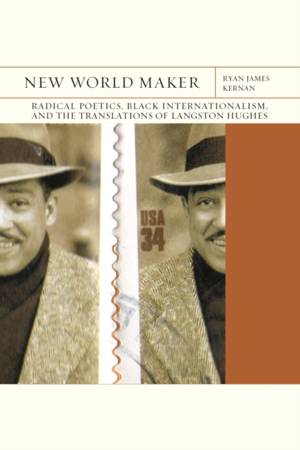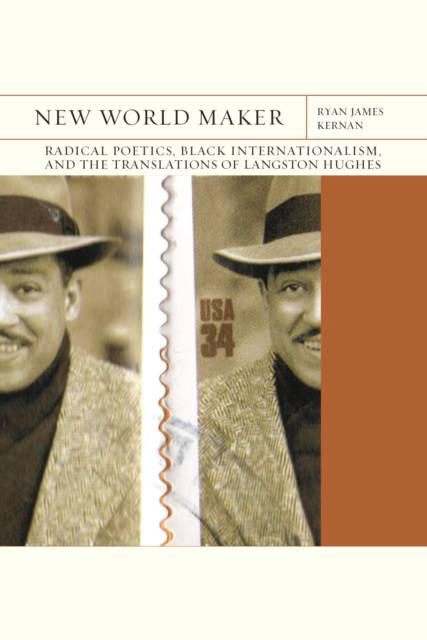
- Afhalen na 1 uur in een winkel met voorraad
- Gratis thuislevering in België vanaf € 30
- Ruim aanbod met 7 miljoen producten
- Afhalen na 1 uur in een winkel met voorraad
- Gratis thuislevering in België vanaf € 30
- Ruim aanbod met 7 miljoen producten
Zoeken
New World Maker
Radical Poetics, Black Internationalism, and the Translations of Langston Hughes Volume 40
Ryan James Kernan
€ 59,45
+ 118 punten
Omschrijving
In an ambitious reappraisal of Langston Hughes's work and legacy, Ryan James Kernan reads Hughes's political poetry in the context of his practice of translation to reveal an important meditation on diaspora. Drawing on heretofore unearthed archival evidence, Kernan shows how Hughes mined his engagements with the poetics of Louis Aragon, Nicolás Guillén, Regino Pedroso, Vladimir Mayakovsky, Federico García Lorca, and Léopold Sédar Senghor, as well as translations of his own poetry, to fashion a radical poetics that engaged Black left internationalist concerns. As he follows Hughes from Harlem to Havana, Moscow, Madrid, and finally to Dakar, Kernan reveals how the writer's identity and aesthetic were translated within these leftist geographies and metropoles, by others but also collaboratively. As Kernan argues, we cannot know Hughes without knowing him in translation. Through original research and close readings alert to the foreign prosody underlying Hughes's work, New World Maker recuperates his political writing, which had been widely maligned by Cold War detractors and adherents of New Criticism, and affirms his place as a progenitor of African diasporic literature and within the pantheon of US modernists. Demonstrating the integral part translation played in Hughes's creative process, this book challenges a number of common assumptions about this canonical thinker and offers important insights for scholars of African diasporic literature, comparative literature, and American, Caribbean, and translation studies.
Specificaties
Betrokkenen
- Auteur(s):
- Uitgeverij:
Inhoud
- Aantal bladzijden:
- 432
- Taal:
- Engels
- Reeks:
Eigenschappen
- Productcode (EAN):
- 9780810144422
- Verschijningsdatum:
- 15/07/2022
- Uitvoering:
- Paperback
- Formaat:
- Trade paperback (VS)
- Afmetingen:
- 148 mm x 226 mm
- Gewicht:
- 566 g

Alleen bij Standaard Boekhandel
+ 118 punten op je klantenkaart van Standaard Boekhandel
Beoordelingen
We publiceren alleen reviews die voldoen aan de voorwaarden voor reviews. Bekijk onze voorwaarden voor reviews.








